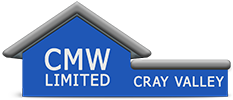
Introduction
The use of rigid metal conduit in construction projects is vital for ensuring the safety and durability of electrical systems. Understanding the manufacturing process behind this crucial component can provide valuable insights into its significance in the industry.
Understanding Rigid Metal Conduit
Rigid metal conduit, commonly known as RMC, serves as a protective pathway for electrical wiring. Its robust nature and ability to withstand harsh environmental conditions make it a preferred choice for various applications in the construction sector.
Manufacturing Process Overview
The manufacturing process of rigid metal conduit involves several intricate steps that ensure its quality and durability. From raw material selection to the final product, each stage plays a crucial role in delivering a reliable conduit for diverse electrical applications.
Quality Control Measures
Maintaining stringent quality control measures during the manufacturing process is imperative to guarantee the performance and safety standards of rigid metal conduit. Implementing thorough inspections and tests at various stages helps identify and rectify potential flaws or defects.
Galvanization Process
One of the critical steps in the manufacturing process is the galvanization of the conduit. This process enhances the durability and corrosion resistance of the metal, ensuring that the conduit can withstand exposure to various environmental elements, including moisture and chemicals.
Installation Considerations
Proper installation of rigid metal conduit is essential to ensure optimal functionality and longevity. Factors such as appropriate fittings, secure fastening, and compliance with industry standards can significantly impact the effectiveness of the electrical system.
Maintenance and Longevity
Regular maintenance practices can prolong the lifespan of rigid metal conduit, contributing to the efficiency and safety of the overall electrical infrastructure. Implementing routine inspections and addressing any potential issues promptly can prevent costly repairs and replacements in the long run.
Comparing Rigid Metal Conduit
Compared to other types of conduit, rigid metal conduit offers distinct advantages, including superior durability, enhanced protection, and increased longevity. Understanding the benefits of using RMC over alternative options can aid in making informed decisions for construction projects.
Future Trends and Innovations
The field of rigid metal conduit manufacturing is continuously evolving, with ongoing advancements and innovations aimed at improving its efficiency and performance. Keeping abreast of the latest trends and technological developments in the industry is crucial for staying ahead in the competitive market.
FAQs
1. What is the purpose of rigid metal conduit in construction projects?
- Rigid metal conduit serves as a protective pathway for electrical wiring, ensuring the safety and durability of electrical systems in various construction applications.
2. How does the galvanization process enhance the durability of rigid metal conduit?
- Galvanization creates a protective zinc coating on the surface of the conduit, making it more resistant to corrosion and ensuring its longevity, especially in challenging environmental conditions.
3. What are the critical considerations for installing rigid metal conduit?
- Proper fitting selection, secure fastening, and adherence to industry standards are essential considerations for the successful installation of rigid metal conduit, guaranteeing its optimal functionality and performance.
4. How can regular maintenance prolong the lifespan of rigid metal conduit?
- Regular inspections and timely addressing of potential issues can prevent costly repairs and replacements, ultimately extending the lifespan of rigid metal conduit and contributing to the efficiency and safety of electrical infrastructure.
5. What are the advantages of using rigid metal conduit over other types of conduit?
- Rigid metal conduit offers superior durability, enhanced protection, and increased longevity compared to other types of conduit, making it a preferred choice for various construction projects, especially those that require robust electrical systems.
6. What are the latest trends and innovations in rigid metal conduit manufacturing?
- Ongoing advancements and innovations in rigid metal conduit manufacturing aim to improve its efficiency and performance, with developments focused on enhancing its durability, sustainability, and effectiveness in diverse electrical applications.
Conclusion
Understanding the intricacies of the rigid metal conduit manufacturing process is essential for cable and containment installers and project managers. By comprehending the behind-the-scenes operations, professionals can make informed decisions regarding the selection, installation, and maintenance of rigid metal conduit, ensuring the safety and reliability of electrical systems on building sites.
If you want to take a closer look at our range of RIgid Metal Condiut, click here. If you want to contact or find out more about this blog posts author, Dave Dann, click here
Related Products
